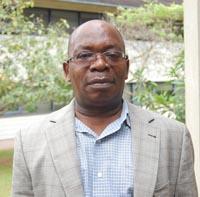Structural transformation of tertiary education in Ghana for accelerated industrial development
Accelerated industrial growth is one of the priorities of Ghana in order to enhance the welfare of her citizenry as well as achieve economic development. Tertiary education has been acknowledged as an effective means by which students can be trained with job-relevant skills to meet the labour demands of industry. As a result state agencies, ministries and the private sector are expressing interest on the need to make tertiary institutions relevant in the country. For instance, in the Ghana Shared Growth and Development Agenda (GSDA), the Ministry of Finance and Economic Planning (MOFEP) prioritizes enhancing the relevance of tertiary education for socio-economic development. MOFEP recognises the indispensability of establishing linkages between the content of tertiary education and the needs of the labour market in order to achieve this socio-economic development. Similarly, the National Council of Tertiary Education (NCTE) has also expressed an interest in enhancing the relevance of tertiary education in the country as it planned to rank tertiary institutions based on the relevance of their programmes to national development and income generation. In addition, the Association of Ghana Industries (AGI) also clamours for suitably qualified graduates to increase industrial productivity. On the backdrop of these outlined needs of policy makers coupled with the imperativeness of the subject, this study was initiated. Its main objective is to unravel the elements of the mismatch between tertiary education and the needs of industry in Ghana. This aim will be achieved by ascertaining answers to the following questions: i. To what extent does tertiary education meet the requirements of job-skills required in industry? ii. What can be done for tertiary education programmes, in both public and private institutions, to be shifted towards demands of industry? iii. Under what conditions will the ideal structures of tertiary education function in Ghana? iv. How have other countries aligned tertiary education to meet the demands of a transforming economy in times of accelerated industrial growth? The study adopts both qualitative and quantitative research strategies. The quantitative aspects of the study will consist of two surveys (industry and tertiary institutions), which will be carried out concurrently. The qualitative aspects will consist of a national stakeholder discussion and a comparative study of practices and experiences from other low middle income countries whose tertiary education aligns well with the needs of industry. The project therefore seeks to present new findings that will help inform the holistic make-up of tertiary institutions in Ghana for the promotion of industrial development and sustainable economic growth.





